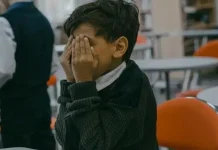By John Krull
TheStatehouseFile.comÂ
INDIANAPOLIS – The bat feels like a toothpick in my hands.
The baseball floats in the air and a small boy chases after it.
I’m tapping fly balls with a child’s bat in my front yard on a lazy Saturday afternoon to a neighbor’s 6-year-old son. My own son – now a strapping 6-feet-2-inch teenager – coaches the little boy.
“When you’re judging a fly ball,†my son says, “your first step is always back.â€
He also shows the younger boy how to control his throws better by making the motion overhand, rather than sidearm. The little boy listens attentively, desperate to learn the game.
The moment takes me back.
I’ve lost track of how many hours I spent hitting fly balls or throwing batting practice to my son. He fell in love with baseball when he was not much older than our young neighbor. My son spent hours out here, tossing baseballs up in the air and whacking them when I couldn’t toss or hit to him. There still are spots worn bare in our front lawn that mark where he stood when he hit and where I stood when I pitched to him – an unofficial batter’s box and pitcher’s mound.
We stopped doing that a few years ago when I tossed him a pitch that he hit with a crack. The ball flew over the street and landed atop a neighbor’s roof. A slightly lower trajectory would have put it through a large and lovely picture window.
It’s a cliché to wax rhapsodic about baseball, to lapse into lyricism about lessons passed from fathers to sons on fields of green.
The temptation is understandable.
I never played much baseball when I was young – a regret now – because summer swim practices conflicted with most Little League schedules. But I treasure the times I spent working with my son as he developed his skills.
The why of that can be found in the game’s nature. Because so much of it is about listening, observing and learning, baseball lends itself to close conversation – to teaching.
I tap a pop fly into the air. The neighbor boy runs under it, glove outstretched. The ball lands in the web, a clean catch.
He holds the ball in the air.
A huge grin splits his face.
He and my son slap gloves together in celebration.
Then my son walks the younger boy through what he did to make the catch, how he tracked the ball, how he squeezed it when it landed and secured the grab with both hands. It’s a lesson my son learned that he now shares.
I watch my son coach, and the other boy listens, with wonder in my heart. I marvel at the way some things endure even as everything around them changes.
A few years ago, I took my son and my father on a trip to see baseball in Cleveland, Ohio, where I was born. Before the Saturday game, we drove over to a working-class neighborhood where we’d lived when I was little more than a toddler.
The three of us played pitch and catch in the tiny little playground behind the small duplex where we lived long ago. As we tossed the ball back and forth, my dad, who was in his 80s, told his grandson about how, decades earlier, he used to throw in this same spot with me.
Dad said it made him feel good to see his grandson take such an interest in baseball.
The ball’s flight tracked the march of generations.
Grandfather to father to son/grandson – and then back again.
Now, my wife sits at a window chair in our kitchen and watches the three of us play. My son notices me smiling at her.
“You can go in and sit with Mom, Dad,†he says. “I can take over for you.â€
Someday, he will.
Because that is the nature of things.
On this day, though, I watch while my son teaches a little boy some things he’s learned from and about a game he loves.
The grass grows. Clouds push across the sky. Time passes.
And that’s okay because I can’t think of any place I’d rather be.
FOOTNOTE: John Krull is director of Franklin College’s Pulliam School of Journalism, host of “No Limits†WFYI 90.1 Indianapolis and publisher of TheStatehouseFile.com, a news website powered by Franklin College journalism students.




